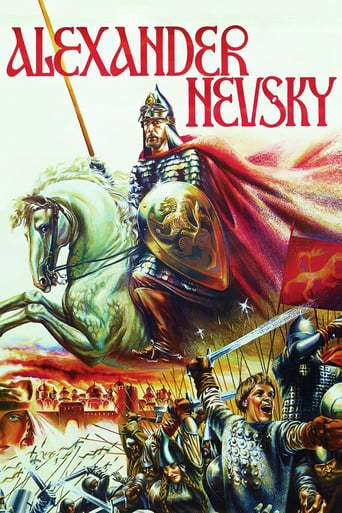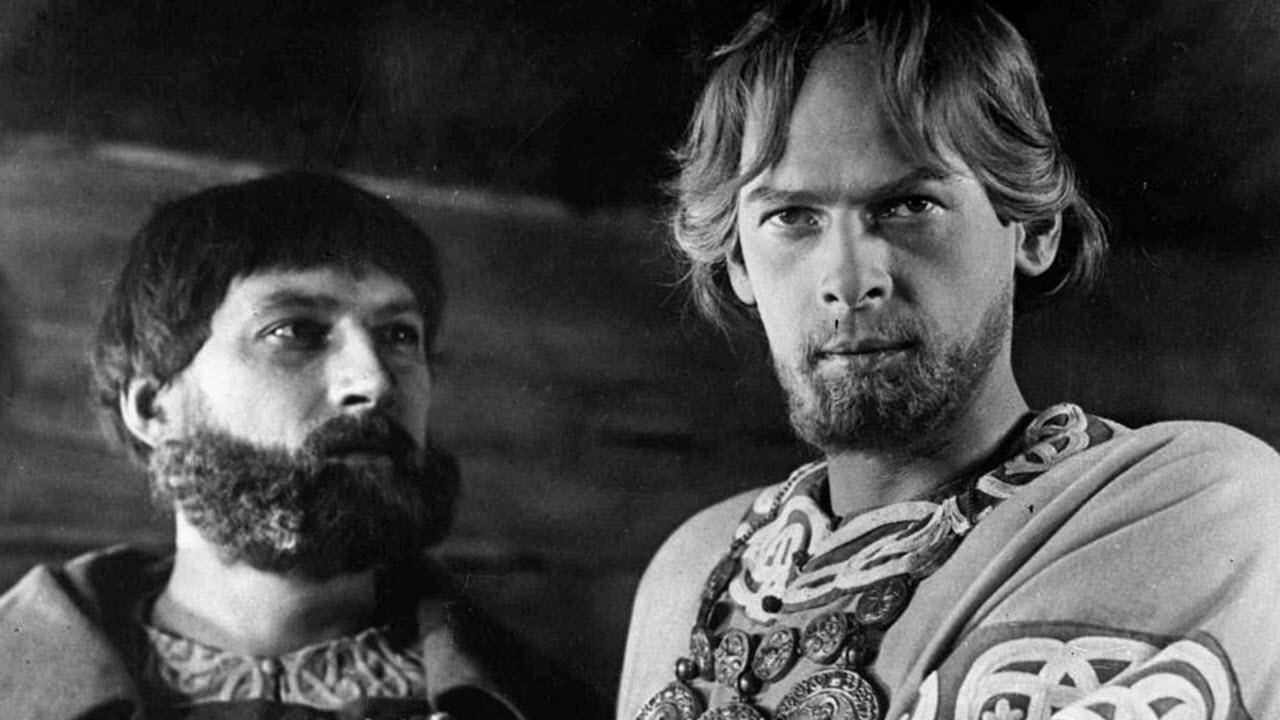gavin6942
The story of how a great Russian prince (Nikolai Cherkasov) led a ragtag army to battle an invading force of Teutonic Knights.After August 23, 1939, when the USSR signed the Molotov–Ribbentrop Pact, which provided for non-aggression and collusion between Germany and the Soviet Union, "Alexander Nevsky" was removed from circulation. But the situation reversed dramatically on June 22, 1941 after the German invasion of the Soviet Union, and the film rapidly returned to Soviet and western screens.Understanding the film in context is important. We could look at it as merely a historical battle of the Russians, Germans and Mongols... and we can certainly enjoy the movie in this context. But it is no accident that the movie was made in 1938, at a time shortly before Russia was to take on Nazi Germany. What better way to excite the Russian people than show them what one of their ancestors did to the Germans?
Hitchcoc
Here we have thirteenth century view of a cold, harsh Russia that is about to be decimated. As the peasants await an attack a stone like hero emerges in Alexander Nevsky. This is an uplifting film in many ways because of the bleakness of existence. It was forged during a time when Stalin was trying to build bridges with the Nazis (how did that all work out). It is filled with anti-religious symbols and a secular plot. There is the great battle on the ice with the amazing Prokofiev score making it more and more provocative. The use of montage was Eisenstein's gift to the world of cinema here as there are cuts back and forth. The deaths of soldiers and the contorted faces show the sacrifice they make. Yes, it is propaganda. Yes, Stalin got his nose in this. But the individual scenes are masterworks of cinema, growing in intensity, a crescendo of jingoism and Russian salesmanship.
WanaxOdysseus
This might surprise some, but in this film, Eisenstein lays down the model for how to create a montage for a pre-modern battle scene. To my knowledge, all movies dealing with such scenes have used essentially the same template. This comes from the scenes when the Russian army is waiting for the Teutons coming over the ice. When you see this sequence, you will never see movies like Braveheart or the Two Towers the same way again. f Moreover, for those who care about such things, the movie actually manages to be truer to how battles were waged than many more contemporary films - you can actually tell how these forces fight on formation!Aside from these aspects, the film also showcases Eisenstein's directorial genius throughout, so it's really a must-see for anyone interested in his contributions to the development of cinema.
drystyx
A celebrated director is tough to critique, as we'll be too tough or too lenient. I think it's best to just forget who directs this.This has all the makings of epic propaganda, of high adventure.Alexander is a war hero, and is called upon to fight the Tuetonic knights of Germany, who invade their land.The chief plot here becomes the subplot of a comic romantic triangle, however, and the interweaving of this is probably the only thing that saves this movie from fairly heavy ennui.We don't mind the Teutonic knights being evil, or Germans being the bad guys, but they are portrayed in a way that makes no sense. For some reason a papal court leads the knights in evil. Not only did the papacy have nothing to do with Hitler, and not only did Hitler persecute all theists, but this had nothing to do with the propaganda needs at the time. The best guess here is that Russia didn't want to offend the rest of the East.Aside from the propaganda, some things work. Alexander is well photographed throughout. Eisenstein's bright spot is in highlighting his hero.The rest of the movie is fairly dull, a struggle to get through. This was made in days of movie houses, so it is understandable that much of the movie is filler space for people to go to the lobby and buy popcorn and soda. This movie must have sold tons of popcorn and soda, because 50% of it is "walk out and buy popcorn and soda" time.Eisenstein doesn't flair as a director, but does have a knack for cameras. Use of cameras seems to be his forte.


 AD
AD



